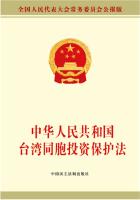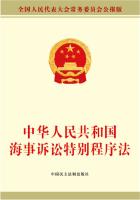李欣默
缩写词
CPS Crown Prosecution Service 皇家检察署
CFTF Corporate Fraud Task Force 公司诈骗特别工作组
DWP Department of Work and Pensions 就业与退休保障部门
ECU Economic Crime Units 经济犯罪工作组
ECTF Electronic Crimes Task Force 电子信息犯罪工作组
FATC Financial Action Task Force 金融行动专责委员会
FSA Financial Service Authority 金融服务局
FCA Financial Conduct Authority 金融行为管理局
FTC Federal Trade Commission 联邦贸易委员会
FPS Fraud Prosecution Service 诈骗检举服务组
FFETF Financial Fraud Enforcement Task Force 金融诈骗执法工作组
FinCEN Financial Crimes Enforcement Network 金融犯罪执行网络
NFA National Fraud Authority 国家防诈局
NPFTF National Procurement Fraud Task Force 国家采购诈骗工作组
OFT Office of Fair Trading 公平贸易办公室
RCD Revenue and Customs Division 税务与海关部门
SFO Serious Fraud Office 反严重诈骗办公室
SAR Suspicious activity report 可疑行为报告制度
SOCA Serious Organized Crime Agency 重大组织犯罪机构
ITTF Identity Theft Task Force 身份盗窃工作组
摘要:诈骗是一种传统的犯罪活动并且和我们的日常生活紧密相连。近些年,许多国家的政府部门都制定了一系列的反诈骗政策,这其中当然也包括英国。英国目前执行的反诈骗政策相比较之前政府的态度而言,是一种具有代表意义的进步。这项政策可以被分为三部分:1.欺诈行为的刑法化;2.监管机构;3.反诈骗的报告要求。然而,在执行政策的过程中,仍然有一部分缺陷的地方显现出来。
这篇论文分析了英国反诈骗的现有结构并且提出了一部分现有政策的缺陷。接下来,提出了一些建议去改正这些有缺陷的部分。一方面,因为美国也采用了类似的反诈骗政策,所以在比较了美国现有的反诈骗政策之后,对英国目前的反诈骗政策的每一部分都提出了改善建议,英国也可以从美国的反诈骗政策发展中学习到经验。另一方面,这篇论文也提出了建议,应该引入一个新的部分进入现有的英国反诈骗政策,这个部分就是提高公众的反诈骗意识,因为建立一个良好的反诈骗意识是一个去完善整个反诈骗体系很有效的方法。所以,这篇论文提出了应该是由4部分组成英国现有的反诈骗政策:1.欺诈行为的刑法化。2.各种监管机构。3.提高公众反诈骗意识。4.报告要求。
诈骗是什么?
不同于其他的“普通的”犯罪活动,受害人可以立即发现不管是他们的人身安全还是财产安全都处于危险中,但诈骗不是如此。相反,诈骗活动中的大多数受害人都是自愿交出财物给犯罪分子,所以“我说谎,你给钱”是公众对诈骗最广泛的一种表述。但是,学术上和法律上都有定义去回答什么是诈骗这个问题。
在法律定义中,大多数国家自己的各项法律都提供了各种定义给检察官和法庭去理解各种不同的诈骗活动。例如,中国的刑法就定义诈骗是指以非法占有为目的,用虚构事实或者隐瞒真相的方法,骗取数额较大的公私财物的行为,此外中国也依然还有其他罪名去描述各种各样的而且更具体的诈骗活动。美国虽然有一个很长的刑法化诈骗活动的立法史,但是还是没有一个统一的定义。美国的邮政欺诈法令可以被认为是一项主要的反诈骗法律,它规定了“无论是谁,已经计划了或者试图计划任何诡计或者计谋去进行诈骗,或者为了获取金钱或者财产通过欺骗性的伪装,陈述……为了非法使用任何假冒的或者……,为了执行这样一种计谋,诡计的目的或者试图去做,运用在任何邮局或者经授权的邮件的保管地对任何邮件,任何东西或事物不论是发送或者交付的邮政服务,或者存款或引起被储存的任何东西或事物……所有这些行为都触犯这项罪名,处罚金或者监禁不超过20年。”邮政欺诈法令宣告一种欺诈邮政系统的行为为诈骗犯罪行为并且为此提供了非常具体的犯罪行为。同时,其他美国的法案也规定了不同的诈骗程度和范围,例如1952年的电信欺诈法令也规定了具体的对电信系统的诈骗内容。然而,没有一个统一的定义被用在每个诈骗法律中。
同样的,在英国的诈骗法案2006之前,诈骗的法律定义是模糊和多样的。盗窃法案1968正式引入了欺诈犯罪;这个法案定义诈骗是一种欺骗的行为。盗窃法案1968代表了英国诈骗犯罪的一个新的开端,因为它区分了拿走一个东西没有得到所有者的同意(盗窃)和拿走一个东西基于这个所有者被欺骗(诈骗)。诈骗的定义开始变得清楚一些。盗窃法案1978改变了一些盗窃法案1968规定但是仍然使用的是欺骗定义。最后,在诈骗法案2006里,规定了三个新的罪名代替了欺骗定义。这项法案规定如果一个人违背了以下任何一个部分,那么他犯了诈骗罪:虚假陈述的诈骗,错误公开信息的诈骗,滥用职位的诈骗。
正如前所述,法律对诈骗没有一个清楚的一致的定义,人们必须去了解不同形式的诈骗行为去判断是否他们被骗了。所以,为了研究学习的目的,避免混淆,在这篇论文中提出一个可以理解的定义,一种分析的定义是很有用的。根据反严重欺诈办公室的定义,“诈骗是一种犯罪活动,是一种欺骗的行为用来获取个人利益或者给他人造成损失。”诈骗也是一种“劝说他人放弃一些东西”并且也‘涉及通过欺骗他人使得犯罪人员个人获益或者避免损失’。综合这些诈骗的学术定义和法律定义的关键元素,诈骗可以简略的定义如下:诈骗是犯罪分子通过一种错误的或者欺骗的(明示的或者暗示的)方式获得非法的利益或造成非法损失的金融犯罪。
诈骗犯罪的影响
诈骗是发生在人们身上的一种常见犯罪形式。例如,根据英国国家防诈局(NFA)最新的年度诈骗指标显示,诈骗造成英国一年损失730亿英镑,增长几乎是去年的两倍(38.4亿英镑)。在美国,多数消费者认为诈骗是最昂贵的一项犯罪,仅仅是医疗诈骗和滥用就使美国损失大概1100亿美金一年。此外,诈骗受害者的范围非常多样,不管是年轻人还是年长者,贪婪和愚蠢也不是造成人们成为诈骗受害者的主要因素。
尽管如此,相比较另外两种金融犯罪,洗钱犯罪和恐怖资金犯罪,诈骗犯罪还是没有得到足够的重视。近十年,由于一些大型诈骗犯罪相继在多个国家发生并且造成经济的连锁反应,所以各国开始迅速发展反诈骗体系。从某种程度上来说,抵押贷款诈骗可以被看作是最近一次全球金融危机的主因。随着越来越多公司诈骗的发生,诈骗所造成的危害就更广泛,不仅仅是针对个人造成的损失还包括政府组织。国际商业信贷银行()就是一个很典型的例子,的倒闭造成了超过70个国家数以千计的人丢失了他们毕生的存款,而的倒闭主要是由于的高管们涉及一系列犯罪包括误导他们的客户相信了错误的股权结构以及财政状况。据报道,此案中债权人申报的损失可能超过1亿美金。此外,还有一些卷入诈骗活动的国际企业也给整个金融系统造成了巨大的损失。英格兰银行揭露巴林银行的倒闭造成的累积损失达到3270亿美金,巴林银行的倒闭主要是因为一个高管滥用一个错误账户隐藏一些投机投资。因为会计欺诈,安然公司和世界通信公司的破产倒闭造成投资者的上百万的损失。上述所有公司在最开始都有非常不错的成绩所以被民众信任。上市公司通常都被期许去避免一个虚假市场的创造或者延续,所以多数投资者都依赖于年度报告去进行投资的决定,这些都基于一个商业惯例,就是公司不应该欺骗所有人。所以,当公司隐瞒他们真正的财务状况或者做出一个虚假的财务报告给投资者时,公司诈骗就可以造成非常严重的影响。而且,这种大规模的诈骗影响了投资者的信心继而危害整个金融市场的平衡。
另外,还有一些针对个人的诈骗案件也逐渐被认识。金字塔骗局是一种典型的投资诈骗,尽管这种骗局是古老和简单的,但是也已经欺骗了许多人。“旁氏”骗局是金字塔骗局的一种类型,它是利用高回报率欺骗投资者进行商业投资,但是这项商业计划是不可持续进行的,并且只是使用后来投资者的钱去还之前投资者的钱。伯纳德·麦道夫(Bernard Madoff的旁氏骗局是美国最大的一起诈骗案件。法庭制定的清算者估算有360亿美金投入进这个骗局,其中180亿美金在这项骗局失败之前已经出去了,另外180亿不见了。
诈骗是一种非常广泛的和复杂的活动,种类包括增值税和循环骗税诈骗,预交费诈骗,抵押贷款诈骗,身份盗窃,网络钓鱼等等,所以反诈骗活动对英国造成了非常多的技术上的难题。此外,诈骗犯可以通过电脑偷取个人和财务数据并且在线建立犯罪组织分享信息,所以诈骗的类型多到难以置信,相应的形式就更复杂。除此之外,诈骗分子已经不再依赖本地资源,他们可以实施犯罪在整个英国或者海外。最重要的是,诈骗犯罪与其他重大犯罪有紧密联系。据报道“诈骗现在是洗钱犯罪的第二大来源”并且恐怖分子也通过诈骗作为他们不法活动的资金来源。诈骗的规模和迄今为止它所造成的损失都是巨大的,所以诈骗犯罪是不能被低估的。由于反洗钱和反恐怖资金一直是政府打击金融犯罪日程上的头等重要大事,所以已经建立了相对成熟的防治体系在对待这两个犯罪问题上。因此,反诈骗政策学习了这两种金融犯罪的政策。
英国反诈骗的框架体系
英国反诈骗政策采用了类似反洗钱和反恐怖资金的政策体系:1.诈骗活动的刑法化。2.监管机构。3.反诈骗报告要求。
刑法化
正如组织洗钱犯罪和恐怖资金犯罪的政策一样,刑法化诈骗活动是反诈骗政策最重要的一步。历届政府的反诈骗立法框架都依赖于基本法律和习惯法的组合。首先有一个问题就要考虑,什么程度的“谎言”可以被认为是犯罪进而被制止。有三种可能的方式去刑法化诈骗行为,第一种模式基于欺骗,意味着犯罪分子实施诈骗必须具有欺骗的意图。第二种模式基于犯罪分子的行为目的是去获得另一方的经济利益或者是给另一方造成损失。最后一种模式只是基于错误表述,也就是受害人不需要去证明相信了诈骗者或者经济利益可能受到危害。正如前所述,在诈骗法案2006之前,英国法律采用的是前两种模式对诈骗活动定罪的。
然而,使用欺骗定义是一种对诈骗犯罪相对狭窄的表述,由此就产生了很多技术上的困难。欺骗定义着重在它的前提条件是如果去实行诈骗犯罪,就必须有证据证明受害人是成功被欺骗之后才遭受损失。但显然,这种方式明确要求犯罪分子的行为要具有效果,所以法庭就必须挣扎的思考一些基本问题,如“是否一个表述是可以被暗示的;是否对一个真的陈述的不作为可以排除欺骗的有效性。”1999年,法律委员会的报告回顾了之前的诈骗的法律和一系列案例。这份报告认为不论是立法基础还是犯罪的技术发展,都应该重新考虑有关诈骗犯罪的法律。这份报告也同样认为之前有太多的罪名去包含诈骗罪,欺诈,盗窃,谋骗,欺诈交易和骗税,最好有一种方式去建立一个单一的罪名能够包括不同形式的诈骗行为。诈骗罪名的有效性也应被提高,因为有很多以欺诈罪名被公诉的犯罪嫌疑人最后都没有办法以欺诈罪被定罪,有些因为技术困难有些因为法律规定的重叠性。随着现代科技的提高,之前的法律已经没有办法处理一些现代犯罪活动,如网络诈骗。这篇报告提议改变诈骗罪名的实体法。英国议会接受了这些建议,所以诈骗法案2006在2007年1月15日正式生效。诈骗法案2006应用了上述提及的第三种刑法化的模式规定了三种新的罪名。
)错误表述的诈骗
诈骗法案2006第二章规定:“如果(a)一个人不诚实地制造了一个错误的表述并且(b)试图通过这个表述去获得利益给他本人或他人,或者造成他人损失或者使他人处于损失的危害中,那么这个人违反了本法律。”这有一个共同要素就是不诚实,这个要素是三项新罪名的中心犯罪意图。陪审团必须去决定是否被告实施的行为是不诚实的。在习惯法中,Rv Ghosh案例有个标准去指导陪审团在认定被告不诚实时必须考虑主观和客观两方面。高希测试的客观方面是指公正的和诚实的人通过在普通标准下是否能认为嫌疑人的行为是不诚实的。主观方面是指陪审团必须考虑是否嫌疑人在他自己的标准下是否意识到他的行为是不诚实的。
这项新罪名的基础是错误陈述而不是欺骗。这样犯罪的焦点就从一个基于结果的欺骗转移到基于行为的陈述。之前法律所采用的欺骗方法着重在嫌疑人要成功的欺骗了受害人使得受害人做出相应的行为可能危害他们的财产。而错误陈述不需要这种结果性或者是对这个错误陈述的反映,它关注的是犯罪分子做出了一个表述。换句话说,用错误陈述作为刑法化诈骗的方法是用来约束犯罪分子的行为。所以这项新罪名也不再要求嫌疑人必须获得什么东西。这种主要的转变也使得这个罪名成立的时间提早,即使受害人知道一个人做出的表述是错误的,但这个人也有可能违反了法律在他做出这个错误陈述之后只要他是有意图去获取他人财物或者造成他人的损失。尽管这项改变对大多数案例来说没有什么不同,但是它还是解决了很多之前法律下存在的一些模糊性的问题,如使用他人信用卡支付,对一个机器做出表述和在受害人已经被事先警告的前提下做出的表述。
一个错误的陈述是指这个陈述是完全错误的或者是具有误导性的并且做出陈述的这个人是知道或者是可能知道这个陈述是错误的或者是具有误导性的。这样就解决了之前法律对欺骗和不诚实概念的重叠问题,欺骗肯定是不诚实的,但是不诚实的范围是比较大的,它包括了欺骗和其他行为。在新罪名之下,一个错误陈述的诈骗可以成立在甚至嫌疑人不知道这项陈述是不真实的。因为不诚实的行为是被认为是有罪的,所以如果嫌疑人使得受害人认为一个客观真实的陈述是错误的,他还是违反了法律。所以陪审团应该分别决定是否这个人是不诚实的和是否这项陈述是错误的。这项罪名的另外一个要求是一个陈述必须是被“做出”并且明示或者暗示的方法都可以。比较之前的法律而言,这又是一项重要的变化。之前的法律明确一个表述不能通过不作为或者沉默的方式被作出除非嫌疑人有法律责任必须说出。在新罪名中的表述已经不局限于通过语言或者行为做出,但是仅仅是沉默还是不足以构成欺骗罪名,也同样不足够成立错误表述的诈骗。尽管s(2)没有规定这种限制,但是s(3)和s(4)规定了具体的情况去处理不作为的案例。
为了处理日益增长的电子诈骗,(2)(5)规定“如果一个陈述(或者任何暗示它的东西)以任何形式被提交给任何被设计用来接收,传输或者响应通信的系统或设备(无论有无人为因素),那么这个陈述可能被认为已经做出了。”在欺骗罪名之下,被广泛认可的是一个机器是不可能被欺骗的。在Rv lands案例中,被告用一个假硬币从一个自动贩卖机中买烟,但是法庭不认为这样的行为是犯罪。相应的,被告使用没有得到授权的信用卡从网络商店中买东西也不是诈骗,但是如果被告用一个假硬币或者一个未授权的信用卡从一个真正的人手中买烟,那么欺骗罪名是成立的。很多人都有疑问,为什么犯罪意图和犯罪行为是一样的,前者行为就不能被认为是犯罪。换句话说,被告获取不正当利益都是使用一样的方法(使用假硬币和未授权的信用卡),为什么欺骗机器就不是犯罪。所以,诈骗法案2006中的新罪名解决了这些问题,一个表述已经不仅仅局限于作用于人的思想。
)错误公开信息的诈骗
另外一个诈骗法案2006中的新罪名规定在第三部分(3):“如果一个人(a)不诚实的未能公开在他法律责任下应该公开的信息给另一个人,而且(b)试图获取利益给他自己或者他人,或者造成他人的损失或者使他人处于损失的危险中通过不公开这些信息,那么他违反了此项法律规定。很明显地,s(3)比s(2)的规定更为狭窄,但是这部分把人们的行为扩展到了现存法律责任之下的消极行为而不是强制的积极行为。这意味着一个人在某些情况下的法律责任之中拥有了更明确规定的责任。可能还是有个重叠存在在s(3)和s(2)之间,就是需要去鉴别一个由于沉默所造成的错误陈述,例如弗斯(firth)案,但是这部分将会帮助陪审团在一系列案例中专注在是否存在法律责任而不是是否存在错误陈述的问题上。
s(3)的关键元素是法律责任(legal duly),但是这项条款也没有提供指导说哪些法律责任可以引起构成s(3)的罪名。所以既然此项罪名必须存在在法律责任的前提下,法律委员会提出了解释说明法律责任的概念:“这样一种责任必须是从法律规定中来的(例如法律条款管理公司招股事项的),从交易管理中来的就是最大诚信原则(比如保险合同),从合同的明示或者暗示条款中,从特别贸易或者市场交易的惯例中,或者从当事人之间存在的信托关系中(如代理人和委托方)。”此外,首席检查官也阐述了这种责任“应该包括所有形式的法律责任,如在口头合同中的表述表款中具有的责任。”所有这些解释覆盖了所有现存在民法中的各种各样的关于各方之间关系的条款。所以,这就意味着在分析一个人是否是在一个法律责任中,民法是首先必须要考虑的。
c)滥用职权的诈骗(Fraud by abuse of position)
第四部分s(4)是第三个新罪名:“(1)一个人违反此项罪名如果他(a)处于一个位置是被期望于去保护另一个人的经济利益,或者是不违背另一个人的经济利益,(b)不诚实的滥用这个位置,并且(c)试图给自己或他人获取利益,或者给他人造成损失,或者使他人处于损失的风险中通过滥用这个职位。(2)即使一个人的行为是不作为的而不是具体行为,那么他也可能被认为是滥用职权。”本节涉及的欺诈犯罪是那些身居要职的人。如果一个人身居要职,他很容易会实施诈骗行为,因为这个人拥有“天生”优势去获取另外一个人的信任和配合。为了制止此种情况,诈骗法案2006就规定了一个章节去处理滥用职权的诈骗。在s(4)中,最重要的问题是怎么去理解身居要职(theposition of trust)。信托关系很明显的是被包括在本章节中。民法中,一个人的信托义务是指在一个信托关系下被其他人信任而产生的责任。信托义务是最直接的概念帮助我们简单了解什么样的职位和什么样的人是被期望于去保护他人经济利益的。上诉法院法官密尔特在Bristol and West BuildingSociety v Mothew案中说过:“一个受托人是在特定情况特殊事情下已经保证采取行动或者是代表他人的人,这样引起的关系是一个他人信任和信心的关系。”在一个信托关系中,有义务的一方必须是在行为方面是为了他人的最大化利益。d)合谋欺骗(Conspiracy to defraud)合谋欺骗在习惯法中扮演着一个很重要的角色去解决在欺骗罪名下产生的技术困难。明确的合谋欺骗的定义是在Scott vMetropolitan Police Commissioner案中,法官迪尔霍恩(Dilhorne)说:“两个人或者多人达成协议通过欺诈方式使一个人失去一些东西或者是他将具有的东西并且两个人或者多个人的这项协议是通过欺诈去造成一些他的专有权利的损失,这些足够构成合谋欺诈。”这项罪名有两个要素:一个是涉及到欺诈的共谋,另一个是如果实施了这项犯罪,财产权利可能会被侵蚀。在R v Wai Yu-Tsang案中,被告和一个银行职员达成一致去掩盖这个银行有一些空头支票的事实。被告是想去阻止这个银行被挤兑。但是法庭认为欺骗和经济损失不是诈骗的必要元素。法官戈夫(Goff)肯定了Welham v DPP中的决定并且主张即使被告的行为是具有良好意图的,但是也能够构成合谋欺诈的罪名。
综上所述,合谋欺诈是习惯法中一项非常宽泛的罪名。所以这是最有效成功提起控诉的罪名,也是很有效去处理如果有多人涉及参与一个诈骗活动的情况。很明显,诈骗法案2006中的三项新罪名比起之前的法律来说,已经被延伸了很多,所以习惯法中的合谋诈骗的补充角色应该要被削减。这有两个主要原则指导合谋诈骗罪名的运用,一个原则是如果一个犯罪行为有具体法律条款规定。那么,以这个法律条款起诉嫌疑人,除非有一个充足理由,不然习惯法的罪名不能被应用。另一个原则是,如果有运用法律规定罪名的程序上的障碍,或者是法律规定罪名量刑的力量不够,就算没有充足的理由,也可以运用这个合谋欺诈的罪名。此外,首席检察官也出具了运用习惯法罪名的指导,包含一些可以用合谋欺诈有效解决的案例类型和一些不能被覆盖在法律条款下的行为类型。
The inadequate and flawed anti-fraud policy in UK
Introduction
Fraud is a kind of traditional criminal activity and connecting ourdaily life closely。 In recent years, various governments make arange of policies to tackle fraud as well as the United Kingdom。Theexisting policy of UK to counter fraud is a significant improvement, compared with the previous attitude of government。This policy canbe divided into three parts:1.criminalisation of fraudulentactivities;2.regulatory agencies;and 3.anti-fraud reportingrequirements。However, there are certain inadequate areas arisingduring the enforcement of this policy。
This dissertation analyzes the current framework of anti-fraud anddiscovers a number of shortcomings in this policy。Then, certainrecommendations are proposed to improve the flawed anti-fraudpolicy。On the one aspect of these recommendations, it is suggestedthat to improve each areas of existing policy by means of comparingpolicy of United States, because US adopts a similar policy totackle fraud as UK so that UK can learn from the experience of US。On another aspect, it is suggested to introduce a new part into theexisting policy, which is the work to enhance the fraud awareness topublic, because establishing well fraud awareness to public is toperfect the entire framework of anti-fraud。Therefore, therecommended policy is the following four parts:1.criminalisationof fraudulent activities;2.regulatory agencies;3.enhance thefraud awareness to public;and 4.reporting requirements。
What is Fraud?Fraud is different from other‘ordinary'criminal activities whichvictims can realize immediately whatever their personal safety orproperty security is in danger。On the contrary, for most victims offraudulent activities, they are voluntary to give money to fraudsters, so“I tell you a lie, you give me the money”“注释◆◆◆1” is themost widely embraced deion for fraud。However, there arecertain legal and analytical/survey definitions to answer the
question, what is fraud?
In terms of legal definitions, most countries have their ownstatutes to provide various definitions for prosecutors and court tounderstand different fraud activities。 For instance, the China'scriminal law defines the fraud is a kind of act through fictionalfacts or concealing the truth to obtain relative large amount of[2]public or private property for the purpose of illegal possession,“注释◆◆◆2”but China also has other charges to demonstrate varies and morespecific fraudulent activities as well as definitions。In the UnitedStates, although it has a long legislative history of criminalizingfraud, there is no consistent definition。The Mail Fraud Statute canbe considered as a major anti-fraud statute, which provides“Whoever, having devised or intending to devise any scheme orartifice to defraud, or for obtaining money or property by means offalse or fraudulent pretences, representations……for unlawful useany counterfeit or……,for the purpose of executing such scheme orartifice or attempting to do, places in any post office orauthorized depository for mail matter, any matter or thing whateverto be sent or delivered by the Postal Service, or deposits or causesto be deposited any matter or thing……any such matter or thingshall be fined under this title or imprisoned not more than 20[3]years”。“注释◆◆◆3”The Mail Fraud Statute criminalizes specific fraud thatmistreating the post office and provides quite concrete criminalbehaviours。Whereas, other statutes have different degrees of scopein fraud, such as The Wire Fraud Statute 1952 also provides specificcontent for fraud to wire system。However, there is no unifieddefinition that is used in each fraud statutes。
Similarly, in United Kingdom, prior to the Fraud Act 2006,the legaldefinitions were vague and varied。The Theft Act 1968 introduceddeception offences formally;it considered fraud was an act ofdeception。Theft Act 1968 represented a new beginning because itdistinguished taking an item without owner’s consent(theft)andtaking an item base on the owner was deceived(fraud)。Thedefinition of fraud became a little clearer。The Theft Act 1978changed certain provisions but still used the deception definition。Finally, in the Fraud Act 2006,three new offences are providedinstead of the deception definition。The Act describes a person is guilty of fraud if he is breach of any of the below sections: Fraudby false representation, Fraud by failing to disclose information, Fraud by abuse of position。“注释◆◆◆4”
As described previously, there are no clear and consistent legal definitions for fraud, people have to understand the diverse patterns of fraudulent activities to estimate whether they are cheated。 As a result, in order to avoid the confusion, for the purpose of this study, it is useful to put forward an understandable definition, the analytic definition for fraud。 According to the Serious Fraud Office (SFO), “Fraud is a type of criminal activity and it is an act of deception intended for personal gain or to cause a loss to another party。”“注释◆◆◆5”Fraud also ‘persuading someone to part with something’“注释◆◆◆6”and it ‘involves the perpetrator making personal gains or avoiding losses through the deception of others’。“注释◆◆◆7”Combining certain academic definition of fraud and key elements of legal definition, the fraud can be briefly defined as follows: Fraud is a type of financial crime which the fraudster obtains an unlawful advantage or causes unlawful loss through a false or deceitful (implicit or explicit) way。
The impact of Fraud
The fraud is a common form of crime and happens to people frequently。 For example, in UK, according to the latest Annual Fraud Indicator of National Fraud Authority (NFA), it reveals the scale of fraud losses in the UK is around 73 billion pounds a year, which is almost double growth of last year (38.4 billion pounds)。“注释◆◆◆8”In US,the fraud is one of the most expensive crimes that endured by millions of US consumers, merely the health care fraud and abuse costs the US an estimated 110 billion dollars a year。“注释◆◆◆9” Moreover, thefraud victims have a diverse range from younger to older, the‘greediness’ and ‘stupidity’ are not main factors in whether people became victims of fraud。
However, fraud had not acquired the sufficient attention as much as the other two financial crimes, Money Laundering and Terrorist Financing。 In recent decades, the framework of anti-fraud is being taken increasing seriously, because certain large-scale fraudulent schemes occurred in most countries and result cascading effect on all parts of the economy。 To some extent, it is can be seen that mortgage fraud is a major concern of the latest global financial crisis。With the arising of corporate fraud, the harm of fraud has increased significantly which cause substantial loss not only on individuals but also governments。For example, the collapse of Bank of Credit and Commerce International resulted numerous depositor of more than 70 counties lost their life savings, because the executives of BCCI involved a range of crimes and misled depositors their ownership structure and financial condition。“注释◆◆◆10” It has been reported that the cost of cases of claiming the damages to the creditors could be more than100 million。“注释◆◆◆11” Analogously, there are other international corporate involved fraudulent activities as wellas cause the vast loss to the entire economic system。The Bank of England revealed that the cumulative losses of Barings Bank is about?327 million due to its one of employees abuse an error accounting to conceal the speculative investing。Both the Enron and World Com caused millions of loss for their investors, because they all had accounting fraud。All of above companies had made brilliant achievements initially and were trusted by most people。Companies are always expected to avoid the creation or continuation of a false market, so most investors rely on the annual reports to make investment decisions and base on a foundation of business practice that companies should not lie to everyone。Therefore, corporate fraud can make serious impact when they conceal the real financial status or make a fake financial report to their investors。Also, the large scale frauds influence the investors’confidence and then endanger the balance of financial markets。
Moreover, there are certain of fraudulent schemes that have targeted individuals have been realized。For example, the pyramid scheme is a typical investment fraud that deceived many people although it is ancient and simple。‘Ponzi’fraud scheme is a type of pyramid scheme which refers to the fraudsters deceive investors to invest a business plan with the promises of high returns, but the business is a non-sustainable model and use the money invested by others to pay for former investors。The‘Ponzi’fraud scheme by Bernard Madoff was one of the largest frauds in United States。The court appointed liquidator estimated36 billion went into the scheme and 18 of is went out before collapse,18 of it is just missing。“注释◆◆◆12”
The fraud activities affecting UK are more technically capable, because fraud covers a very broad and complex set of activities, such as VAT&Carousel Fraud, Advance Fee Fraud, Mortgage Fraud, Identity Theft, Phishing and so on。 In addition, the fraudster can steal personal and financial data through computer and share information and build criminal organizations online, so the typologies of fraud are incredibly numerous and diverse accordingly。Besides, the fraudsters are not relying on the local resource any more;they can operate criminals across UK and overseas。Most importantly, fraud is linked to other serious crimes。It is reported that“fraud is now the second biggest source of money laundering”“注释◆◆◆13” and terrorists also use fraud to funding their illegal activities。“注释◆◆◆14” As a result, the scale of fraud and the losses it have caused are substantive and fraud should not be underestimated。Considering the anti-money laundering and terrorist financing are the top significant matters in the government’s financial crime agenda all alone and they have owned a relative mature framework of prevention。“注释◆◆◆15” Consequently, the anti-fraud policy can be learned from the other two types of financial crime。
The Framework of Anti-fraud in UK
The UKfraud policy adopts the similar policies of anti-money laundering and terrorist financing, which states as following:1.criminalisation of fraudulent activities;2.regulatory agencies;and 3.anti-fraud reporting requirements。“注释◆◆◆16”
Criminalisation
To criminalize the fraudulent activities is the most important step of anti-fraud policy as the similar policies has been applied to prevent money laundering and terrorist financing。In United Kingdom, the legislative framework of successive governments depends on primary legislation and common law of conspiracy to defraud。However, the question arises which level of‘lying’can be considered as a crime and should be restrained。There are three possible ways to criminalize fraudulent conducts, the first modelbased on deception which requires the criminal to operated fraudmust own the intention of deception。The second model based on the conduct of the defendant that the purpose is to obtain or to cause loss the economic interests of another。 The final one based on false representations which do not need the proof of the victim to believe him or it would imperil economic interests。“注释◆◆◆17” As mentioned before, prior to Fraud Act 2006,English law recognized the first two models。
However, the deception definition is a kind of relative narrow expression of fraud。Therefore, it produced a range of technical difficulties。The focus on deception was the pre-condition to commit a fraud offence, there must have the evidence to show that the victim suffered loss base on the successful deception。Obviously, this kind of criminalization required the effect under the behaviour of defendant so that the courts had to struggle certain fundamental issues such as“whether a representation could be implied;whether indifference as to the truth of a representation precluded an operative deception。”“注释◆◆◆18” In 1999,the Law Commission Report“注释◆◆◆19”reviewed the previous law of fraud and a number of cases。It identified necessity to reconsider the law of fraud, whatever the basic of the legislation or the technologic development of crime。“注释◆◆◆20”In this report, it is suggested that there were too many offences to cover the fraud previously, deception, theft, conspiracy to defraud, fraudulent trading and cheating the revenue。It is a better way to establish a single offence that including various forms of fraudulent conducts。“注释◆◆◆21” Moreover, the effective of the fraud offence should be improved, because there were many deception cases had been aroused but cannot declare them guilty of deception offence owning to technical difficulties and overlap provisions。Also, with the development of modern technology, the former law cannot deal with certain modern criminal activities, such as internet fraud。Thus, the report concerned the changes to substantial law of fraud。Parliament received the recommendations in this report and the Fraud Act 2006 came into force on 15 January 2007.The Fraud Act 2006 applied the third criminalisation model to create three new offences which mentioned above。
a)Fraud by false representation
The section(2)of Fraud Act 2006 details:“a person is in breach of this section if he(a)dishonestly makes a false representation, and(b)intends, by making the representation to make a gain for himself or another, or to cause loss to another or to expose another to a risk of loss。”There is a common element, dishonest, which is the central mens rea in three new offences。 The jury has to determine whether the defendant acted dishonestly。The common law created a standard to direct the jury must consider both subjective and objective aspects before reaching a verdict of dishonesty, which formulated in the R v Ghosh。“注释◆◆◆22” The objective aspect of Ghosh test means whether the conduct of defendant would be regarded as dishonest according to the ordinary standard of reasonable and honest people。The subjective aspect means the jury has to consider whether the defendant realized he was acting dishonestly, by his own standard。“注释◆◆◆23”
The basis of this new offence is false representation other than deception。The focus is shifted from a result-based deception to a conduct-based representation。“注释◆◆◆24” In terms of deception method in the former law, which focused the defendant who had to deceive victim successfully and the victim carried out certain related acts that could damage their property。The false representation does not require a result proof or the reaction to the representation。It focuses on making of the representation by the offender。In other words, this method is used to criminalize the conduct of defendant。Therefore, the new offence no longer requires the defendant has to obtain anything。“注释◆◆◆25” This major shift also makes the completion of offence earlier, the person maybe breaches the law after he made a false representation with intention to gain or cause loss even through the victim know the statement is false。“注释◆◆◆26” Despite this change makes no difference for most cases, but it resolves certain confused areas under the former law, such as the use of payment cards, made representations to a machine and make representations under the victim has been pre-warned。“注释◆◆◆27”
A representation is false if it is untrue or misleading and theperson who made it knows that it is, or might be, untrue or misleading。“注释◆◆◆28” This resolves an overlap between the concept of dishonest and deception under the previous law, because a deception is necessarily dishonest, but the extent of dishonest is large, it includes the deception and other conducts。Under the new offence, a false representation can be established even if the defendant does
not know it to be untrue。 While the dishonest would be considered guilty if the statement is objectively true but the defendant makes victims believing the representation to be false。Therefore, the jury can determine respectively whether the person is dishonesty and whether the statement is false。Another requirement of the new offence is a representation must be“made”and may be express or implied。“注释◆◆◆29” This is another major shift when comparing with former law。The former law illustrated a statement could not be made by omission or silence unless the defendant owned a duty to speak。“注释◆◆◆30” The representation in new offence is not restricted will be by words or conduct。However, the mere silence is not sufficient to constitute deception and also is not enough for fraud by false representation。“注释◆◆◆31” Although s(2)does not provide this limitation, s(3)and s(4)provide specific circumstances to deal with cases of omission。
Furthermore, in order to tackle the growing electronic fraud, the s(2)(5)provides“a representation may be regarded as made if it(or anything implying it)is submitted in any form to any system or device designed to receive, convey or respond to communications(with or without human intervention)。”Under the deception offence, it had been widely considered that there was no possible to deceive a machine。In R v Hands“注释◆◆◆32”,the defendant bought cigarettes from a vending machine by using a fake coin, but the court held this behaviour was not an offence。Similarly, the defendant was not committing a fraud through using the credit card to buy items from an internet shop without authority, but the deception offence can be established if the defendant obtained cigarettes from a real person by using fake coins or using credit card without authority。“注释◆◆◆33” Most people questioned why the mens rea and actus reus are same, former behaviour cannot be considered as a crime。In other words, the defendant wants to acquire the undue benefit and all use the same methods(use fake coins and unauthorised cards),why to cheat a machine is not a crime。Therefore, the new offence in Fraud Act 2006 overcomes these problems, a representation is not limited has to act on person’s mind merely。
b)Fraud by failing to disclose informationAnother new offence has been introduced by Fraud Act 2006 in section
(3):“a person is in breach of this section if he(a)dishonestly fails to disclose to another person information which he is under a legal duty to disclose, and(b)intends, by failing to disclose the information to make a gain for himself or another, or to cause loss to another or to expose another to a risk of loss。 It is obviously that s(3)is much narrower than s(2),but this section extends to the negative acts under the existence of a legal duty not being constrained positive conducts。It means the person owns preive duties in certain circumstances within a legal duty。Despite there is an overlap between s(3)and s(2)in where it is possible to identify a false representation due to silence, such as the Firth case, but this section will help the jury to focus on the legal duty rather than a false representation in a number of cases。The key element of section(3)is the legal duty, but it does not provide guidance on what kinds of“legal duty”can trigger liability。Therefore, since the defendant must have a“legal”duty, the Law Commission illustrated the concept of legal duty:“Such a duty may derive from statute(such as the provisions governing company prospectuses),from the fact that the transaction in question is one of the utmost good faith(such as a contract of insurance),from the express or implied terms of a contract, from the custom of a particular trade or market, or from the existence of a fiduciary relationship between the parties(such as that of agent and principal)。”“注释◆◆◆34” Moreover, the Attorney General also interpretedthe duty“would cover all forms of legal duty, such as duties arising under the express terms of an oral contract。”“注释◆◆◆35” All of the interpretation covered various relationship provisions existing in civil law。Therefore, it is apparent that the civil law should be considered when analyze whether a person is under a legal duty。
c)Fraud by abuse of position
The section(4)is the third new offence and states:“(1)A person is in breach of this section if he(a)occupies a position in which he is expected to safeguard, or not to act against, the financial interests of another person,(b)dishonestly abuses that position, and(c)intends, by means of the abuse of that position to make a gain for himself or another, or to cause loss to another, or to expose another to a risk of loss。(2)A person may be regarded as
having abuse his position even though his conduct consisted of an omission rather than an act。”“注释◆◆◆36” This section relates to the fraud offence by those in a position of trust。
It is easier to commit fraud when a person occupies a position of trust, because the person owns“natural”advantages to obtain another person’s trust and cooperation。For this end, the Fraud Act 2006 provides a separate section to handle the fraud by those in a position of trust。In s(4),the important problem is how to understand the position of trust。It is apparently that those in a fiduciary relationship are covered in this section。In civil law, the person owned fiduciary duties towards to the person who trusts them under a fiduciary relationship。The fiduciary duty is the most straightforward concept to help us simply understanding what kind of position and who is expected to safeguard the financial interest。Lord Justice Millet said in Bristol and West Building Society v Mothew:“A fiduciary is someone who has undertaken to act for and on behalf of another in a particular matter in circumstances which give rise to a relationship of trust and confidence。”“注释◆◆◆37” In a fiduciary relationship, the obligated party has to act in the best interest of another。
d)Conspiracy to defraud
The common law of conspiracy to defraud plays a vital role toresolve the technical difficulties under deception offence。The definition of conspiracy to fraud was clarity in Scott v Metropolitan Police Commissioner,“注释◆◆◆38” Lord Dilhorne said:“It is clearly the law that an agreement by two or more by dishonesty to deprive a person of something which is his or to which he is or would be entitled and an agreement by two or more by dishonesty to injure some proprietary right of his, suffices to constitute the offence of conspiracy to defraud。”There are two elements in this offence:one is the conspiracy involved dishonesty, another is the property right would be eroded if the offence was carried out。However, in R v Wai Yu-Tsang,“注释◆◆◆39” the defendant agreed with employees of a bank to cover up there were dishonored cheques passing though the bank。He had done this with good intentions to prevent a run on bank。The court held deception and the economic loss are not necessary elements of fraud。The Lord Goff affirmed the decision of Welham v DPP,“注释◆◆◆40” and also held the conduct of defendant’s with good intention can constitute the offence of conspiracy to defraud。“注释◆◆◆41”It can be seen from the above, the conspiracy to defraud is a very wide offence in common law。Therefore, this offence is the most effective charge to deal with the situation if there are numerous defendants are engaged in a fraudulent activity。Obviously, the scope of three new offences in Fraud Act 2006 has been extended more than the previous law, so the supplement role of conspiracy to defraud in common law should be curtailed。There are two main principles, one is if the conduct should be prosecuted under the specific statutory provision, the common law offence cannot be used unless there is a good reason。Another is if there is not a good reason but there is a procedural bar to the use of statutory offence, or the sentencing power of the statutory offence is perceived which is not deficient, the conspiracy of defraud can be applied as well。“注释◆◆◆42” Moreover, the Attorney General also issued guidance on the use of common law offence,“注释◆◆◆43” which provided certain types of cases including those cases would be resolved effectively by conspiracy to defraud and those types of conduct are not covered by any statutory provision。
Conclusion
Fraud is no longer a general crime that would cause small losses merely, it is already a serious threat to financial security and financial order。The harm of fraud would spread to every aspects of social and economic life。For this end, to tackle fraud should be the top priority in the agenda of national crime control as same as money laundering and terrorist financing。The policy of anti-fraud is a necessary measure to protect the social and economic security。There is no doubt that the current fraud policy is a significant improvement to prevent fraud。However, after reviewed the framework of anti-fraud, certain shortcomings of enforcement should be improved。
This paper suggested that to criminalise the fraud should focus on the specific crimes and provides the detailed criminal behaviours, which can reduce the overlaps of the three offences and increase the effectiveness of prosecution。A government department to be the leader of regulatory authorities also is demanded urgently, this
improvement can boost the rational allocation of resource whatever the manpower, material and funds。 The reporting obligation should be enhanced through to simplify the reporting procedure and authorities, and add a duty to reporting centre which is to analyze the collected data。Most importantly, introduce a new part to existing policy, to enhance the fraud awareness to public。This new part would recover the weak foundation of the reporting obligation as well as to perfect the entire anti-fraud framework。
I would sincerely like to thank all who helped contribute to this dissertation。Also, I would like to give most thanks to my supervisor Stokes, Robert, who provide guidance, suggestions and critical reviews for my dissertation research。I want to take this opportunity to say thank you to my parents for they have provided support, understanding throughout the whole study life。
“注释★★★1”M。Bowron, Commissioner of Police for the City of London in Levi et al, The Nature, Extent and Economic Impact of Fraud in the UK, Feb。2007
“注释★★★2”Criminal Law of People’s Republic of China, Article 266
“注释★★★3”U。S。C。1341
“注释★★★4”Fraud Act 2006, Section 1,2,3,4
“注释★★★5”SFO, “What is Fraud?”http://www。sfo。gov。uk/fraud/what -is-fraud。aspx
“注释★★★6”Doig, Alan, Fraud (Willan Publishing, 2006, p19)
“注释★★★7”FSA, “Fraud”, available at http://www。fsa。gov。uk/about/wha t/financial_crime/fraud
“注释★★★8”8]NFA, March 2012, available at http://www。homeoffice。gov。uk/publications/agencies-publicbodies/nfa/annual-fraudindicator/annual-fraud-indicator-2012?view=Binary
“注释★★★9”9]Emily Fisher, “The impact of Health Care Fraud on the United States Healthcare System”,(SPEA, April 2008)
“注释★★★10”Anu Arora,“The statutory system if the bank supervision and the failure of BCCI”(JBL, Aug。2006,p487-510)
“注释★★★11”Rory, Cellan-Jones, BBC News,2 November 2005,available at http://news。bbc。co。uk/1/hi/business/4401210.stm
“注释★★★12”Safer Morley, CBS News, The Madoff Scam:Meet The Liquidator, June 2010,available at http://www。cbsnews。com/stories/2009/09/24/60minutes/main5339 719.shtml?tag=currentVideoInfo;segmentUtilities
“注释★★★13”Financial Action Task Force, Global Financial Crime Assessment,2010
“注释★★★14”NFA, Fighting fraud together, section 1 the fraud challenge,2010
“注释★★★15”The Anti-money Laundering policy has been led by HM Treasury in UK, and can be divided into three parts-the criminalization of money laundering, regulated financial institutions and the use of reporting identifiable to the relevant authorities。The UK’s terrorist financing policy has a longer time than US, and also can be divided into three parts-the criminalization of terrorist financing, the freezing of terrorist assets and the use of Suspicious activity reports(SARs)。
“注释★★★16”Nicholas Ryder, Financial crime in the 21st century(2012,Edword Elgar Publishing Limited, p123)
“注释★★★17”Simon Farrell, Nicholas Yeo, Guy Ladenberg, Blackstone’s guide to the Fraud Act 2006(2nd edn,2007,Oxford University Press)
“注释★★★18”David Ormerod,“The Fraud Act 2006-criminalizing lying?”(Mar。2007,CLR, p193-219)
“注释★★★19”Law Commission Consultation Paper No。155,‘Legislating the Criminal Code:Fraud and Deception’
“注释★★★20”Ibid
“注释★★★21”21]Carol, Withey,“The Fraud Act 2006-some early observations and comparisons with the former law”(2007,JCL, p220-237)
“注释★★★22”[1982]Q。B。1053,the fact was about Dr Ghosh obtained money for work that was carried out by others during he was a locum surgeon。The jury found him guilty by using their common sense to determine whether or not the defendant’s conduct had been dishonesty。
“注释★★★23”Ibid
“注释★★★24”Ibid
“注释★★★25”Ibid, C Withey
“注释★★★26”David Ormerod, The Fraud Act 2006-criminalizing lying?(Mar。2007,CLR, p193-219)
“注释★★★27”Simon Farrell, Nicholas Yeo, Guy Ladenberg, Blackstone’s guide to the Fraud Act 2006(2nd edn,2007,Oxford University Press)
“注释★★★28”Fraud Act 2006,s(2)(2)
“注释★★★29”Fraud Act 2006 s(2)(4)
“注释★★★30”in R v Firth(1990)91 Cr App R 217,the defendant was a consultant and failed to inform the hospital that certain patients were in fact private patients whom obtained NHS facilities without payment。
“注释★★★31”R v Rai,[2000]1 Cr App R 242,
“注释★★★32”(1887)52 JP 24
“注释★★★33”See Metropolitan Police Commissioner v Charles[1977]AC 177 and R v Lambie[1982]AC 449
“注释★★★34”Law Commission, Fraud, para7.28 available at http://lawcommission。justice。gov。uk/docs/lc276_Fraud。pdf
“注释★★★35”Simon Farrell, Nicholas Yeo, Guy Ladenberg, Blackstone’s guide to the Fraud Act 2006(2nd edn,2007,Oxford University Press)
“注释★★★36”Fraud Act 2006,s(4)
“注释★★★37”[1998]1 Ch 1 at 18
“注释★★★38”[1975]AC 819,the fact was Scott was indicted because he had the intention to cope and distribute a number of films which were obtained from various local cinemas。The charge included conspiracy to defraud the owners of the copyright。
“注释★★★39”[1992]1 AC 269
“注释★★★40”[1961]AC 103 per Lord Denning, the conspiracy of defraud is“not limited to the idea of economic loss, not the idea of depriving someone of something of value。It extends generally to the purpose of the fraud and deceit……If anyone may be prejudiced in any way by the fraud that is enough。”
“注释★★★41”Ibid
“注释★★★42”Simon Farrell, Nicholas Yeo, Guy Ladenberg, Blackstone’s guide to the Fraud Act 2006(2nd edn,2007,Oxford University Press)
“注释★★★43”Available at与http://www。attorneygeneral。gov。u k/Publications/Documents/conspir acy to defraud final。p df















